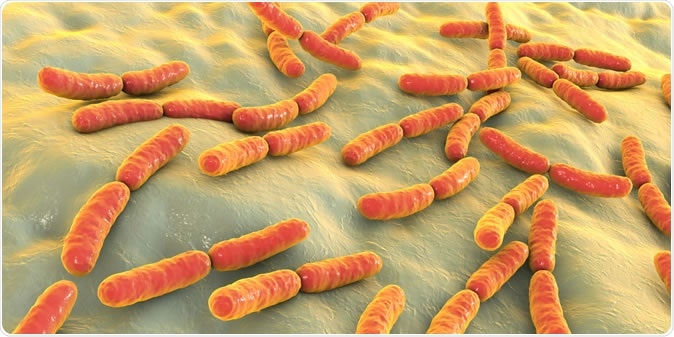Probiotics aren’t harmless, says a new study published on November 7, 2019 in the journal Nature Medicine. In fact, some patients may be put at serious risk by the bacteria in probiotics. Doctors should weigh the risks of probiotics in severely ill or immunocompromised patients before prescribing them, as their benefits may be significantly smaller than the danger in such situations.
Probiotics
Probiotics are live micro-organisms, which are used to enhance health. Such bacteria and yeasts are often found in fermented foods, dietary supplements and beauty products. Their use is based on the established fact that beneficial bacteria in the gut number in trillions, and help us digest our food, produce vitamins and other essential nutrients that promote healthy growth and development, and keep disease-causing organisms at bay. In fact, probiotics contain many of the same microbes found naturally in the human body.
Most probiotics contain some mixture of Lactobacillus and Bifidobacterium, and yeasts like Saccharomyces boulardii. About 4 million American adults use probiotics within a given period of 30 days, making them next in frequency of use only to vitamin and mineral supplements.

Bacteria Lactobacillus, 3D illustration. Image Credit: Kateryna Kon/ Shutterstock
Many patients today receive probiotics in many forms for many and varied reasons. For some, it may be a functional bowel disorder that is linked to abnormal gut microflora. For others, there may be debilitating illness which could be benefited by the nutritional support given by beneficial gut bacteria. Patients on antibiotics might receive probiotics to prevent Clostridium difficile antibiotic-resistant diarrhea because they help re-establish some healthy gut micro-organisms. Premature infants get them to help prevent fatal gut and blood infections.
So far, there hasn’t been much proof that bacteria found in the blood in certain patients who were given probiotics actually came from these pills. The current study was undertaken to examine this possibility.
The study
The study looked at patients in the ICU (intensive care unit) for various indications who were treated with probiotics, among other things. The research covered 5.5 years, during which there were 552 patients treated with probiotic capsules containing Lactobacillus rhamnosus. Overall, 22,174 patients were treated in the same ICU during this period, but the rest did not receive probiotics.
They compared the risk of blood infection, or bacteremia, with this organism, in these patients compared to that in non-probiotic patients. In the second part of the experiment, the researchers analyzed the genomics data from these bacterial samples, and traced their phylogenetic origin.
The findings
The results showed that there were 6 patients who were diagnosed with blood infection due to L. rhamnosus from this group, compared to zero patients from the rest of the patients were not given probiotics. In other words, the first group was found to have a markedly higher risk than the second.
New whole-genome sequencing methods were then used to find out the source of the Lactobacilli in these 6 patients. This showed that the Lactobacilli species isolated from the patients were identical to those in the probiotic they had been treated with. Whatever little difference there was, indeed, between the isolated bacterial strains, was found to originate in the probiotic itself.
Some of the bacterial strains found in the blood showed new-origin mutations. In one patient, the blood isolate was of Lactobacillus rhamnosus, and showed a new mutation which made the bacterium resistant to the antibiotic rifampicin.
Implications
Previous studies have suggested the possibility of gene transfer from probiotic microbes to other bacteria in the gut, making the latter antibiotic-resistant. Some studies also show that in some cases, probiotics may lead to the production of toxins. And finally, a regulatory issue exists: some probiotics contain micro-organisms that are completely different from those that are on the label.
The researchers conclude that not only can bacteria found within probiotics directly lead to bacteremia in susceptible patients, but they can also undergo mutations to adapt to the presence of antibiotics, and to establish their optimum rate of growth and proliferation in the human host.
Source:
Journal reference:
Yelin, I., Flett, K.B., Merakou, C. et al. Genomic and epidemiological evidence of bacterial transmission from probiotic capsule to blood in ICU patients. Nat Med 25, 1728–1732 (2019) doi:10.1038/s41591-019-0626-9, https://www.nature.com/articles/s41591-019-0626-9